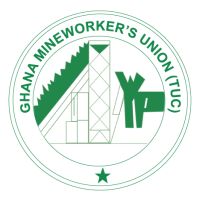Find Forestry expertise in Ghana
- Overview of sector
- Production
Agriculture, forestry and fishing together contribute 30% of Ghana’s GDP (2010). Around 23% of Ghana’s land area is forested and the annual forest loss rates from 2000-05 were 115,000 hectares (2010). In the last century it is estimated that Ghana has lost 85% of its forested area. This is due to the dominance of the timber industry and its continued expansion. All land is considered under public ownership in Ghana, therefore all forests are owned by the state.
In 2010 there were almost 5 million hectares of forests. In the heavily forested hills of southern Ghana this is dominated by evergreens and semi-deciduous forests, consisting of tall silk cottons, kolas, and valuable hardwoods such as mahogany, odum and ebony. Tropical high forest predominantly occupies the landscape but its land coverage is declining at a fast rate. The northern two-thirds of the country are largely covered by savannah, which contains shea trees, acacias and baobabs.
The predominant activity on forested land is production and this accounts for around 23% of forest land use. Since 2000, the Forestry Commission of Ghana has embarked on a national plantation development programme to establish 20,000 hectares of new forest each year.
The Forestry Commission of Ghana regulates forest and wildlife resources, oversees the conservation and management of those resources and coordinates policies related to them. Other associations include the Ghana Timber Association and the Centre for Agro-Forestry Business Development. The Ministry of Lands and Natural Resources is responsible for the management of Ghana’s land, forest, wildlife and mineral resources. The Ministry is also in charge of monitoring and evaluating the sector and the validation of policies, programmes and projects. The Working Group on Forest Certification is a member of the Sustainable Forest Management Programme and certifies forest products that are from well-managed forests. Ghana is also a member of the Forest Carbon Partners Facility. Ghana is working towards achieving the EU’s FLEGT (Forest Law Enforcement Governance and Trade) licensing.
The country has reacted to changes in global environmental concerns, which have affected the way in which Ghana’s tropical forests are managed. The Forestry Commission, in response to concerns over forests sustainability, is putting effort into ensuring only legal timber is on both the export and local markets. There is a great deal of support aimed at downstream processing in order to augment the value of forest products and to reduce the pressure on the environment.
The commercial forestry industry is concentrated in the southern parts of Ghana, with over 100 companies in operation. The country has a number of small, medium and large processing facilities manufacturing over 17 different wood products. Timber and timber products are the major export commodities but timber is also harvested for local use. Ghana exports more than fifty species of timber to 44 destinations worldwide. This includes some of the strongest and most durable species in the world and embraces a wide variety of colour and grain, from almost white (Wawa) to very dark (Kaku), and from timbers suitable for the toughest use as sea defence, bridge construction and railway sleepers to the handsome woods for furniture, panelling and flooring, and to the very light-weight species for interior work.







